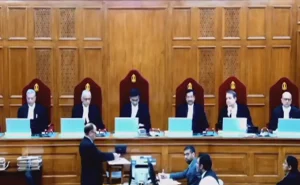Nagpur In a baffling revelation, the State Anti-Corruption Bureau (ACB) has reported a significant drop in the number of traps set for corrupt government officials across Maharashtra over the past decade. According to recent statistics released by the ACB, the trend showcases a noteworthy decline and reached a noteworthy low in 2023 sparking concerns about the effectiveness of the Bureau’s strategies in combating corruption, a report in a local daily said.
Comparing data from 2014 to 2023 reveals a consistent downward trend in the number of registered traps. In 2014, the ACB recorded 1,245 traps, with a gradual decrease over subsequent years: 1,234 in 2015, 985 in 2016, 875 in 2017, 891 in 2018, 866 in 2019, 630 in 2020, 764 in 2021, 728 in 2022, and 795 in 2023.
While a reduction in traps may initially seem positive, it raises questions about potential underreporting or a shift in corruption methods that evade traditional ACB tactics. Cases related to Disproportionate Assets (DA) have followed a similar downward trajectory, further deepening concerns.
According to a senior police official has voiced concerns over the effectiveness of the State ACB, linking the decline to a potential erosion of trust between the agency and the common man. The decrease in traps could indicate a lack of complainants coming forward, possibly due to hesitation or fear. The official stressed the need for proactive steps, including an increased focus on fieldwork, to effectively address bribery demands.
The official emphasized the significance of reinstating measures that boost public confidence. Despite the decline, another police official suggested that the ACB’s shift towards quality traps aimed at securing convictions could be a strategic move. Scrutiny of information from SP to Police Inspector helps eliminate potential blackmailing by complainants against government officials.
The public is urged to avoid engaging in corruption through intermediaries and instead approach the ACB directly to lodge complaints. Building trust with the public is seen as crucial for encouraging more people to come forward with information and contribute to the fight against corruption.
The decline in anti-corruption traps poses a multifaceted challenge, prompting a re-evaluation of strategies and a renewed focus on fostering public trust in the anti-corruption efforts in Maharashtra.















